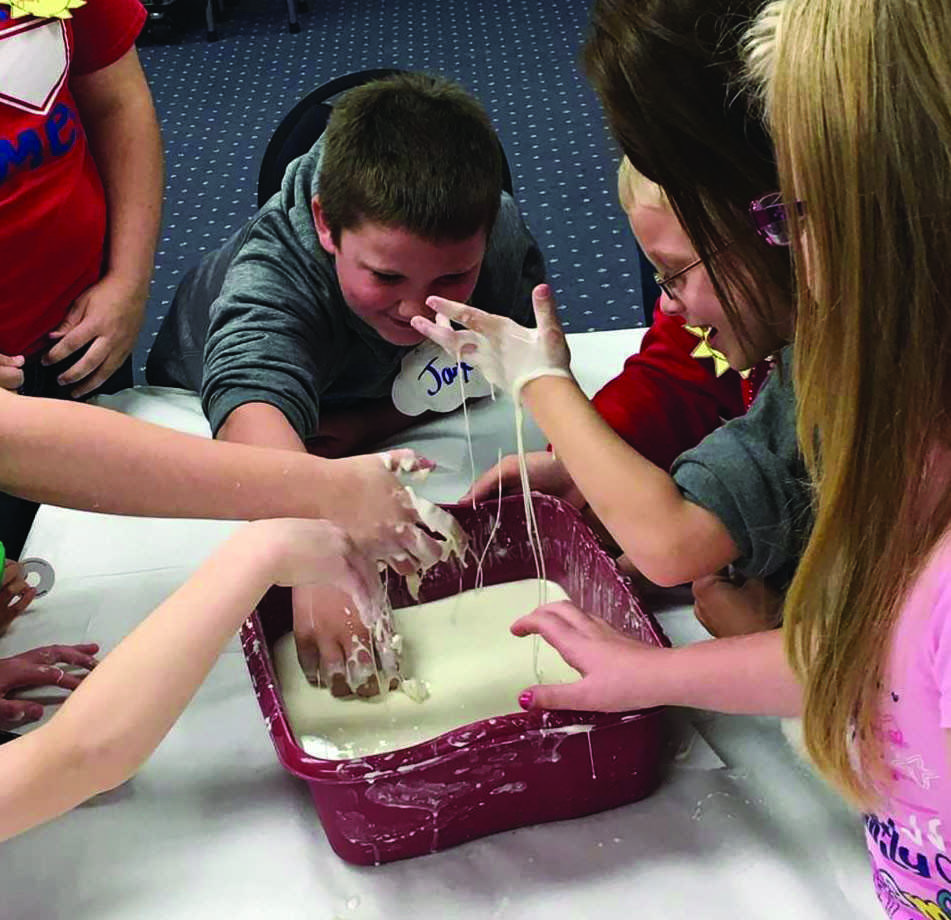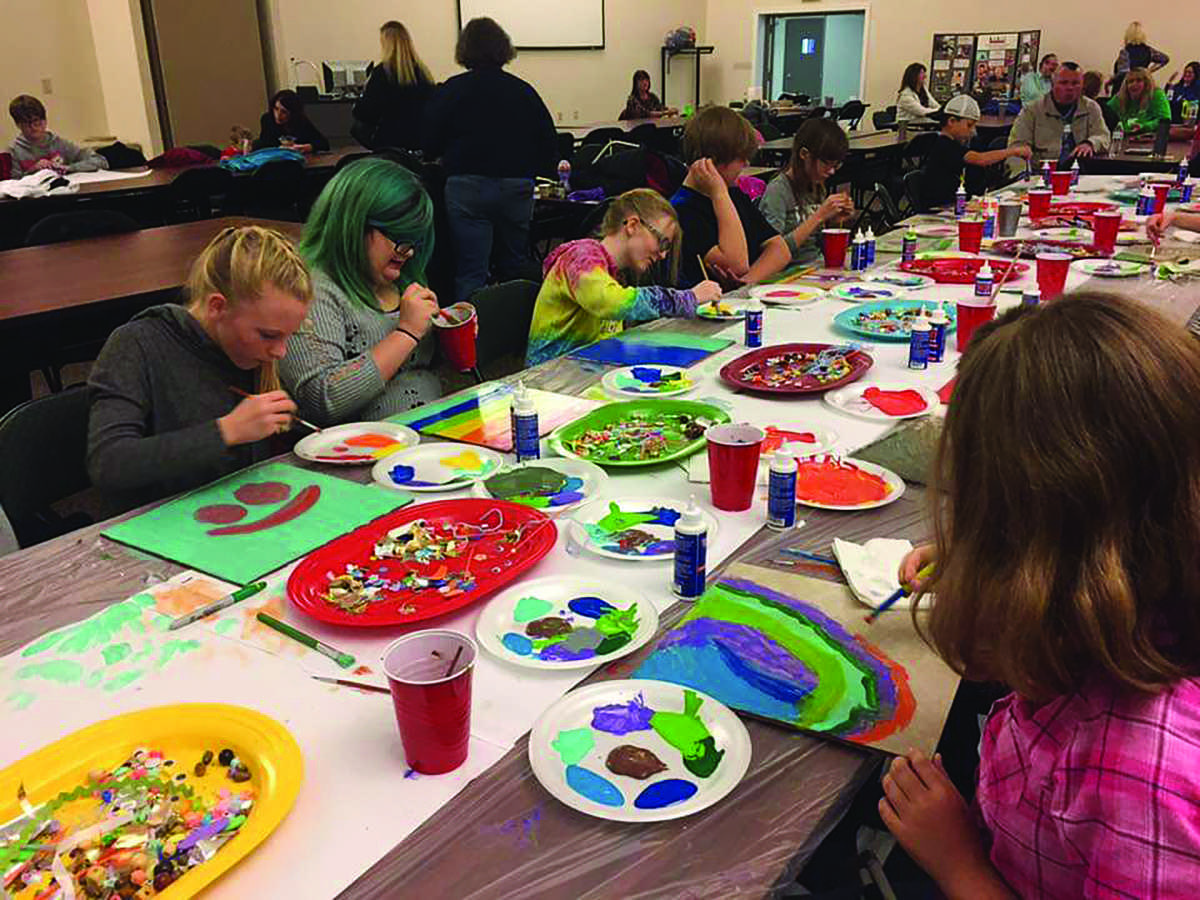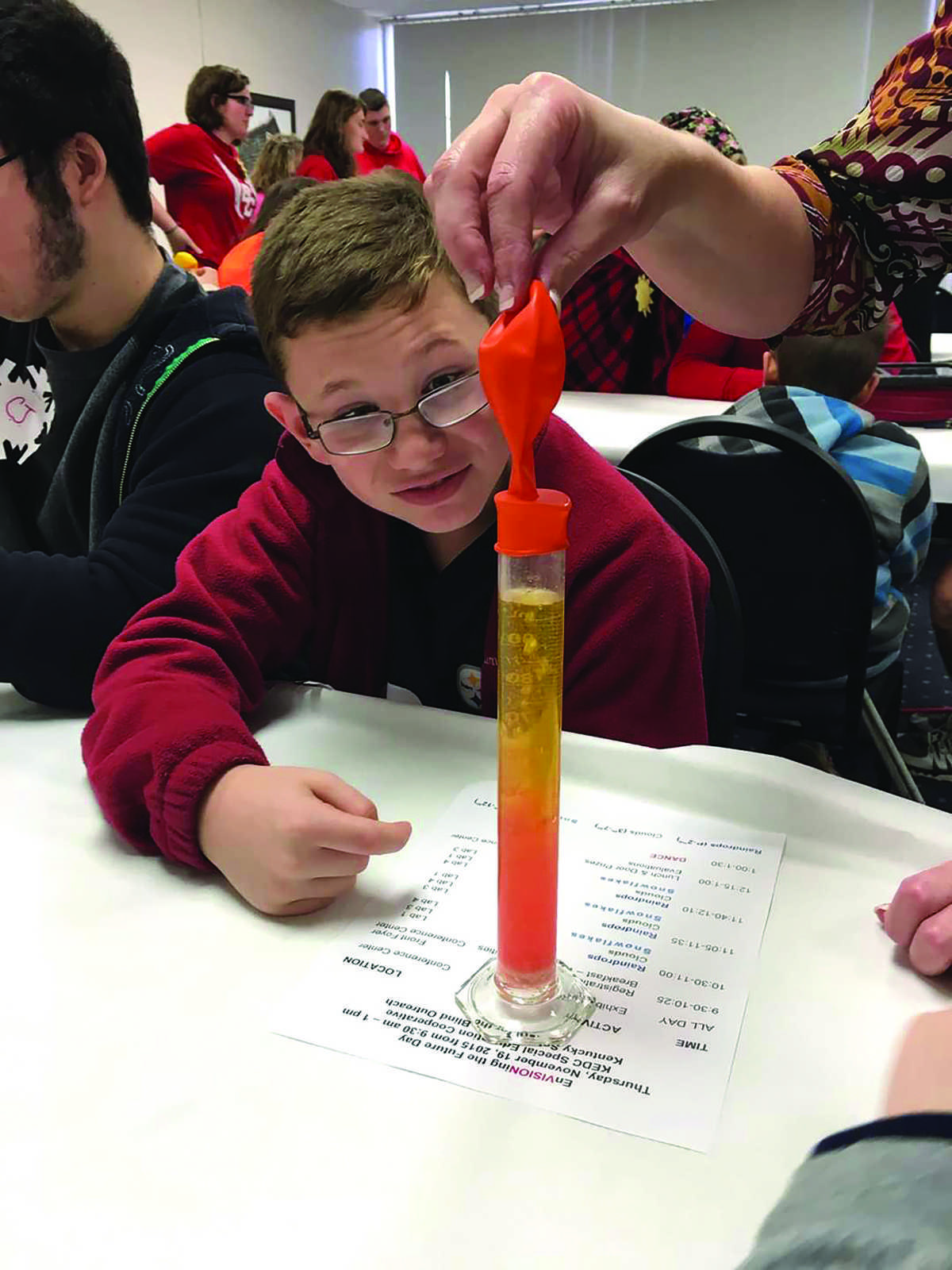Kentucky School for the Blind Outreach Program Prepares Students for Life After School
As a public school teacher, Pamela Howard had her life changed by a visually impaired student. As a result, Howard now drives thousands of miles throughout Kentucky to change the lives of those with sight issues.
During her time teaching public school, the Grayson native encountered special needs students, including those with vision impairments. “We had a student who was blind in Elliott County and the school needed a teacher for the blind and visually impaired,” Howard remembered. Howard, who had planned to return to school to earn her master’s degree, utilized available tuition assistance to enable those wishing to work with visually impaired children to attend the University of Louisville, all while continuing to work as a teacher. After earning her degree, Howard learned braille, completed an internship at the Kentucky School for the Blind (KSB) in Louisville, earned her certification and began teaching the blind.
In 1839, the Kentucky School for the Blind became only the third state-supported school for the blind established in the United States. The Louisville school provides comprehensive educational services to all Kentucky students who are blind and visually impaired. Many who attend the school live in dorms during the week and return home on weekends. Because it isn’t feasible for many students to leave their homes, the school established its Outreach Department to assist local school districts. Following a brief stint as a teacher for the visually impaired, Howard became the state’s first outreach consultant nearly 20 years ago. Today there are seven.
As an outreach consultant, Howard serves 21 school districts, assisting teachers for the visually impaired and facilitating opportunities for students. “We’re an extension of the campus,” Howard said of the outreach program. “We exist to help children and families try and keep students in their home counties. I provide technical assistance to districts and to families, and I mentor newer teachers for the blind.”
Howard is based out of the Ashland location of Kentucky Educational Development Corporation (KEDC), and in her service area, she works with more than 200 visually-impaired or blind students and the 14 itinerant teachers that serve them. “The teachers really form close bonds with the students and their families,” Howard said, noting that while other teachers will change, the special education teachers serve students kindergarten through high school graduation, meaning they often follow a child through his or her entire public school experience.
When describing the education and skills taught by her teachers, Howard is quick to point out there is often a misconception of what it means to teach the blind. “There is a whole range of visual impairments,” Howard said. “You may have a child that has decent acuity but has another deteriorating condition that will have them become more impaired through the years, so in that instance, we teach them skills to be ready.” While many of her students are born totally blind, Howard has more on a spectrum of visual-impairment, including those that only require magnification and some who, with the proper training and equipment, will drive someday. While high-functioning visually impaired or blind children learn braille, non-high functioning students are taught how to use symbols and their hands to communicate.
Teachers utilize a number of approaches tailored to the specific needs of each student. “All these skills build on each other until high school so we have them ready to move on into the world,” Howard said. Real-world readiness is the entire goal of the Kentucky School for the Blind and its outreach program. In addition to classroom instruction, this world-readiness is accomplished through efforts such as the outreach program’s upcoming Life Skills Symposium. Taking place April 16 at KEDC in Ashland, the symposium seeks to expose students to skills and resources beyond what they’ve had in their studies. “The symposium is all related to how to go to college and how to live on your own,” Howard said.
The upcoming symposium is the third annual event in Ashland, with 50 children attending the most recent iteration. Attendees will learn job interview skills and will have access to a career inventory professional who can help determine the types of employment each student might be most qualified for following graduation. A main component of the symposium will be demonstrations of technology that helps with independence. Howard said the students love working with technology, and the number of devices available to aid with real-world tasks is greater than ever before.
Howard has also witnessed an additional benefit from events like the Life Skills Symposium beyond what is taught. “It’s just good for families to meet each other,” she said. “They may have a child that’s never met another kid with a visual impairment.”
To support the Life Skills Symposium or for more information on the Kentucky School for the Blind Outreach program, call Howard at 606.465.5831.



